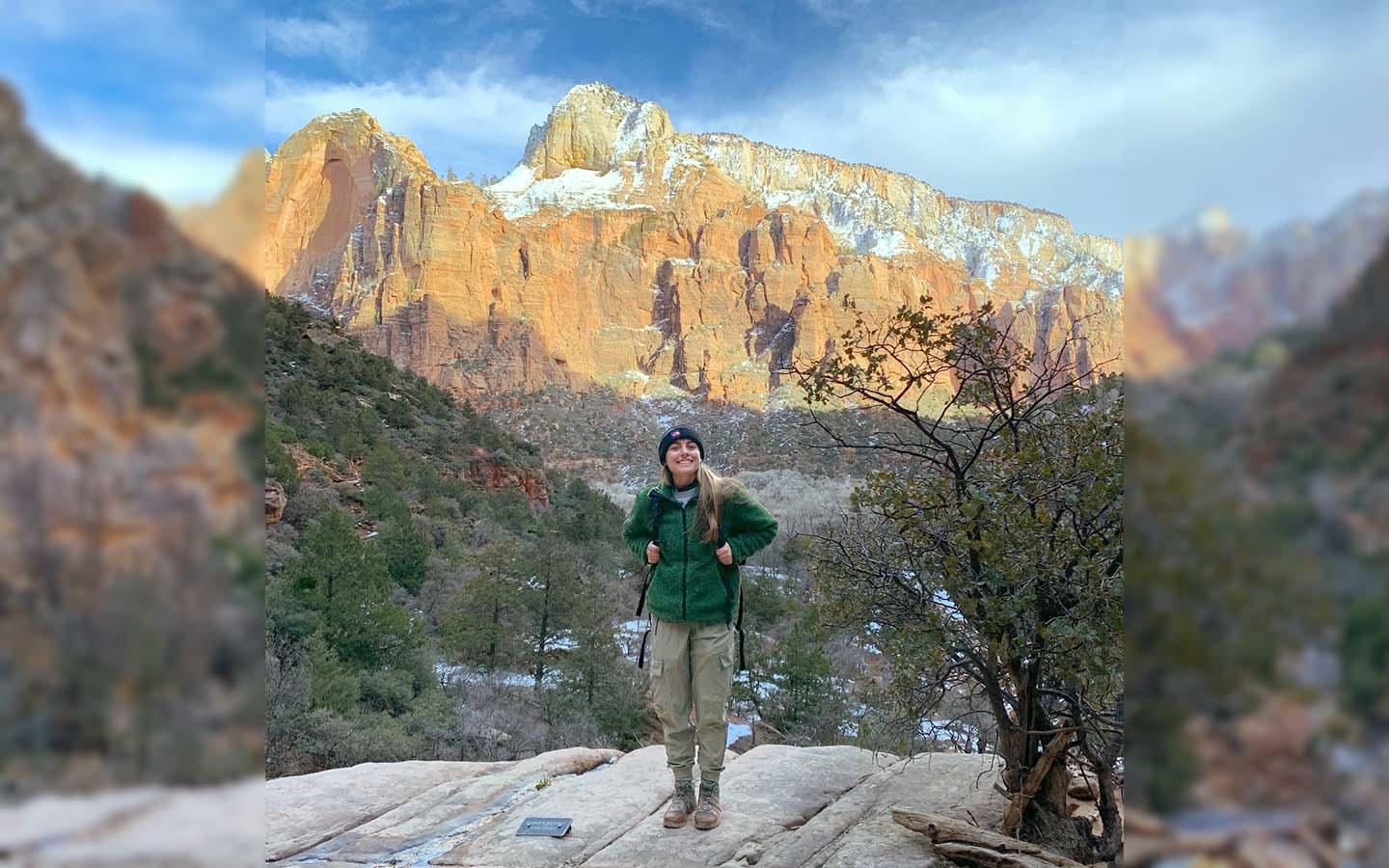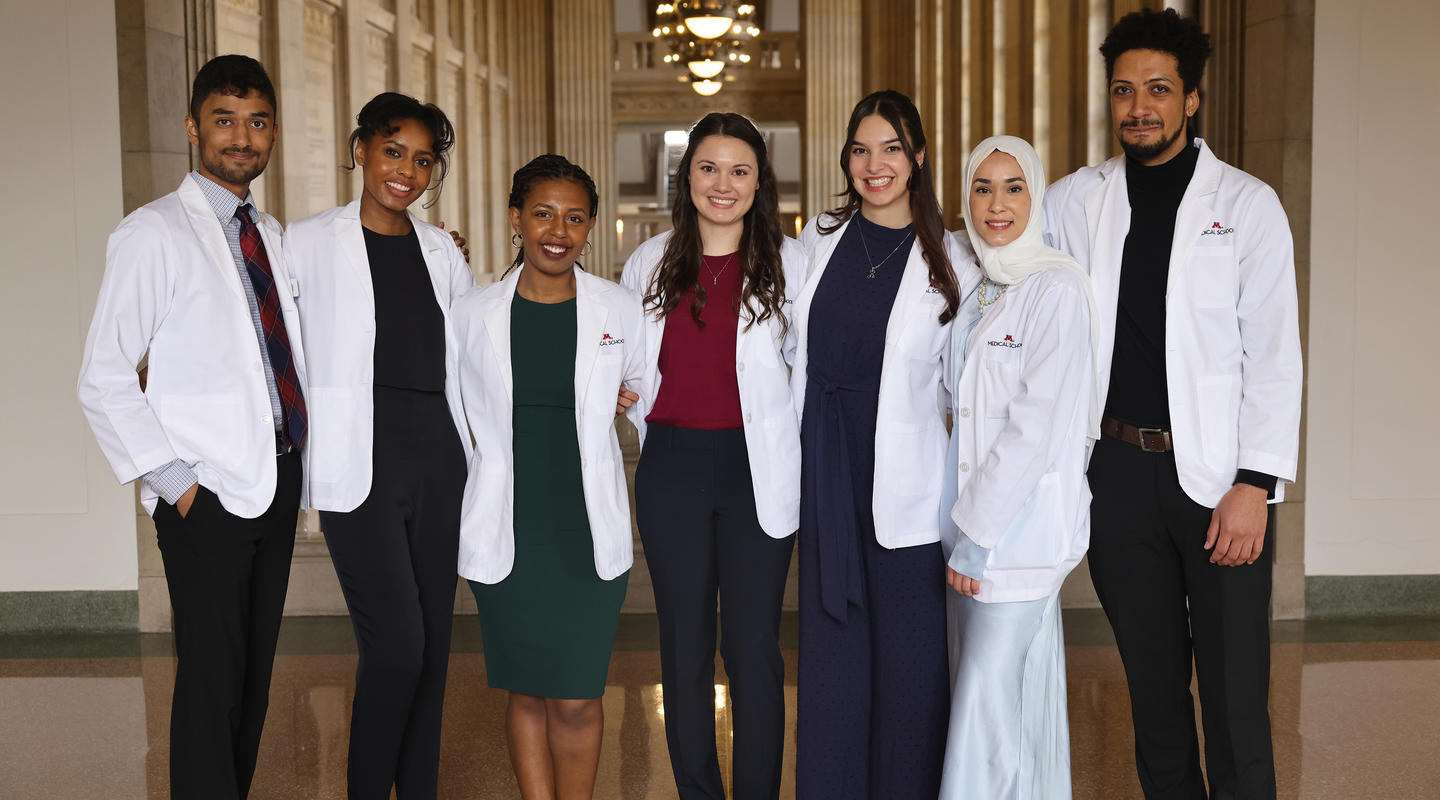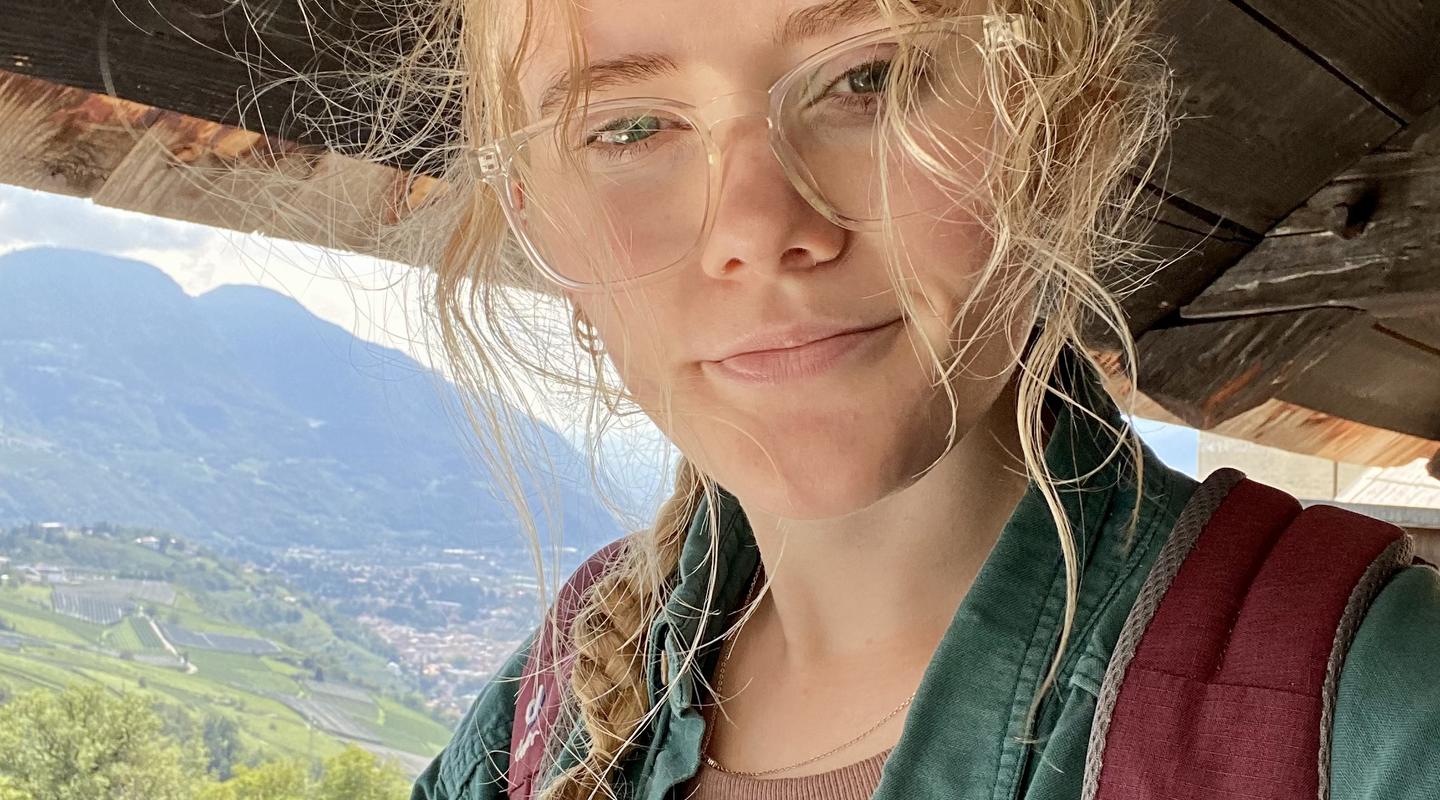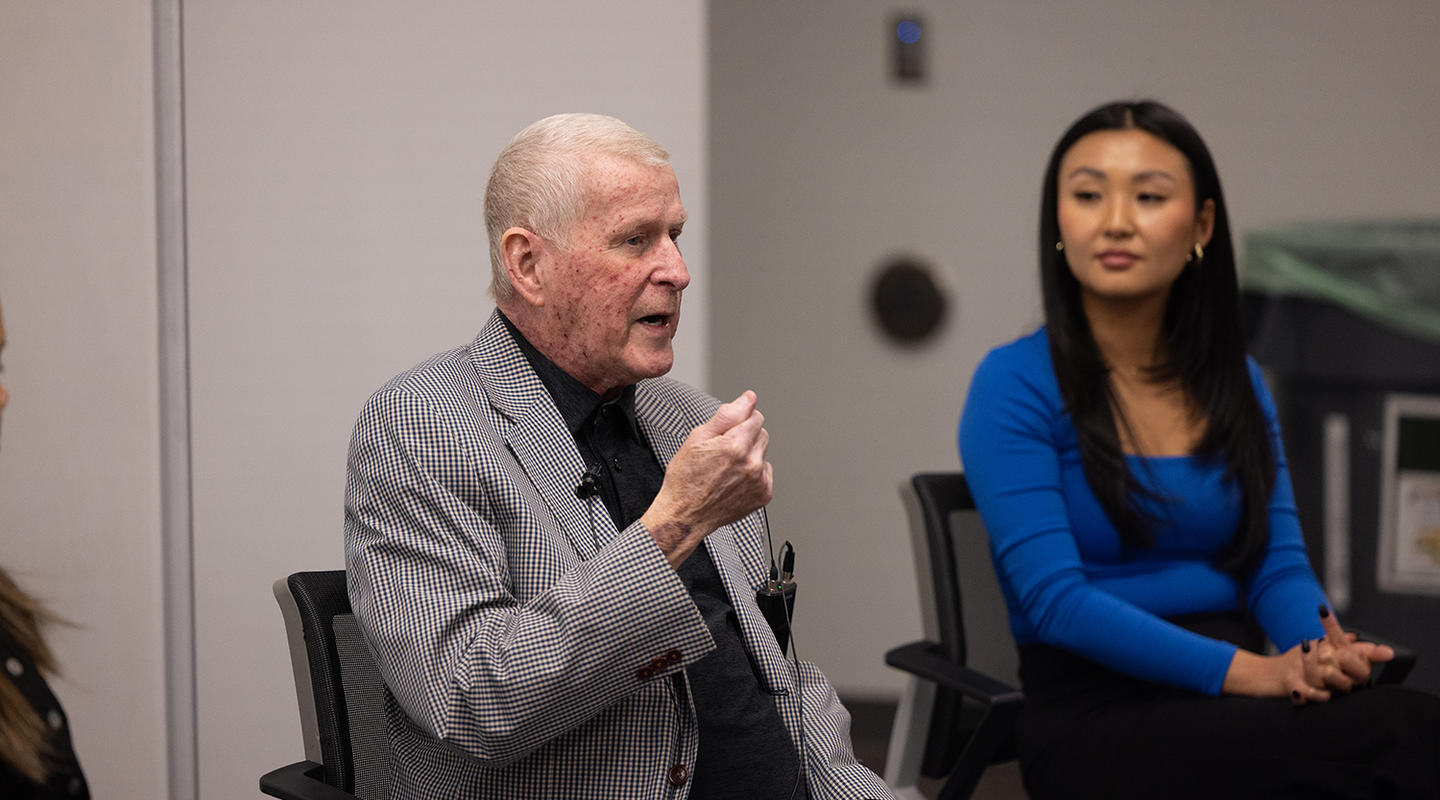
Jordyn Berg hiking in Zion National Park during her senior spring break trip. Courtesy: Jordyn Berg.
Jordyn Berg had been struggling with alcohol as a teenager. When she came to the University of Minnesota in 2019, trying to stay sober became even more difficult.
“There’s a heavy drinking culture at colleges and universities. For students struggling with substances or in recovery or dealing with family members who are struggling with substances, it can be very lonely and isolating,” she says.
COVID-19 compounded the problem, moving classes online and closing the dorms the second semester of her first year. “Then things in my personal life happened that made it worse,” she recalls. “I started seeking out resources but was still in denial about the fact that I might have a problem with drinking.”
She attended several online meetings of Recovery on Campus (ROC), which operates through Boynton Health. It provides community and support to students who are questioning their relationship with drugs and alcohol. But it didn’t stick.
By the fall of her junior year, Berg was back on campus and coming to terms with the fact that she needed more help. She went into outpatient treatment.
As she became more comfortable with being in recovery, Berg decided to give ROC another chance. This time, she found a home.
“It’s a really unique experience to be in recovery on a big campus like the U of M and trying to stay sober,” she says. “I needed to find people who were doing the same thing.”
She started attending weekly ROC meetings and monthly fellowship events—bowling, sledding, mini golf, movie nights. “It gave me a sense of community on campus—having people I could reach out to and talk to about things others may not fully understand. It was also one of the first places where I really started having fun.”
Helping students stay sober
ROC got its start in 2006 as SOBER (Students Off Booze Enjoying Recovery). “Participation varied from semester to semester,” says Julie Sanem, director of health promotion at Boynton. When the student leader left in 2018, Sanem says they hired two student coordinators, who revamped the group and rebranded it as ROC.
Sanem says all first-year students learn about ROC in required training on the impact of alcohol on the mind and body. ROC also spreads the word at student events and on Instagram. She says about a dozen undergraduate, graduate, and professional students regularly attended meetings last year.
In 2022-23, ROC launched its first fund-raising campaign and worked with the Steve Rummler Hope Network to provide overdose response training on campus.
“It never felt like a job”
Berg, who graduated with a degree in kinesiology this spring, was one of the student coordinators. She says she hopes to stay involved in some capacity.
“Being able to be that helping hand that was so freely given to me was a big draw,” she says of her time as a coordinator. “It never felt like a job.”
You can help students recovering from substance abuse by giving to the U of M’s Student Recovery Support Fund.


